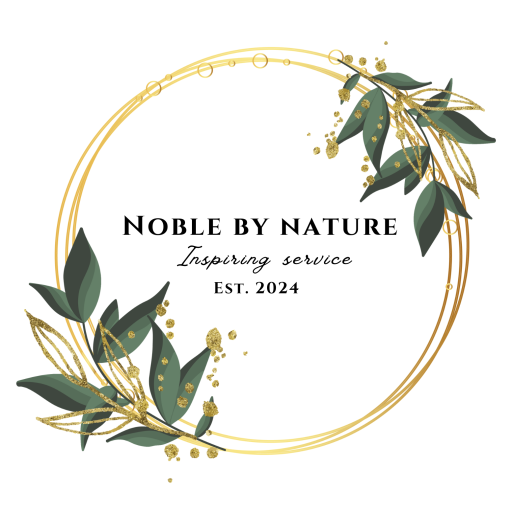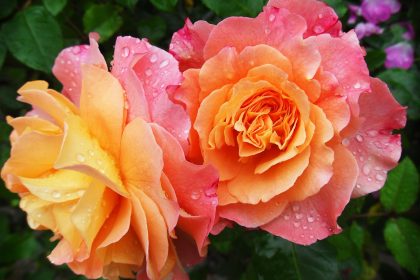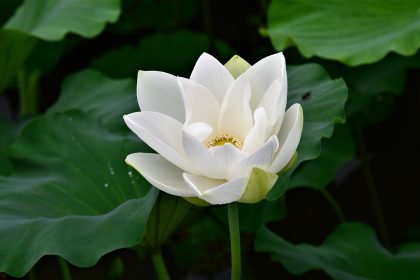The last few weeks have been unpredictable. My reality was turned upside down when my grandfather had to be rushed to hospital because he had a severe infection. We spent the first few hours in the emergency room not knowing if he would make it. He turned ninety in March and I think it is safe to say that he is well beyond the period in his life where there would be a natural decline. All my life, my grandfather has been the healthiest person I know. He was health-conscious, athletic and had the natural temperament of a true champion. So to see him in a state of severe pain and illness, was scary. Sometimes, we unconsciously assume that life will remain static in its blessings, and we forget that God can change our circumstances in an instant. During this period, it became even clearer to me why it is so important to be able to maintain your state of personal peace when you are facing distressing challenges and situations and how one goes about doing so in a modern world’s hustle and bustle that is filled with the discordance of deadlines, relentless responsibilities and the persistent pressure to pursue perfection. The power of inner peace brings a profound sense of serene comfort in a world where chaos reigns supreme. It allows you to cultivate a sense of tranquillity within oneself that emerges as an indispensable asset and a source of resilience, clarity, empowerment and unwavering strength.
As I reflect on the challenges that have passed, I can more appreciate the sense of stability and balance that emerges from seeking solace in practices like prayer and meditation as these practices serve as instruments that transcend fleeting emotions and transient pleasures. It helps one to see that the cultivation of inner peace is enduring and rooted deeply in turning inward and facing the essence of your being. You develop an intimate relationship with yourself where you can look within and shine a flashlight on the aspects of yourself that are shadowed and unresolved. You begin the brave journey of facing your truth and take the first step in embracing your authentic, raw and real self. The “you” that you have suppressed and oppressed with shame and blame, often forgetting that the mistakes you made empowered you to take ownership of your narrative and create the foundation for a life lived in alignment with your true soul purpose.
The society we live in often glorifies outward achievements and material possessions so the power of mastering one’s inner realm often appears murky in the general consciousness of our society. We live in a world of distractions. Our attention has become a sought-after commodity. The media plays into our insecurities and conjures up our emotional saboteurs who enjoy the thrill of generating feelings of overwhelm and psychological turmoil. We listen to the voices that convince us that we are inadequate, purposeless, and weak. If we are not vigilant, these voices can turn into our habitual narrative that disguises itself as constructive criticism. Building a strong and fortified mindset that encapsulates the wisdom and musings of emotional intelligence, enables one to respond thoughtfully rather than react impulsively to the rollercoaster we call Life.
Instead of viewing Life as a rollercoaster, we shift our perspective to the philosophy that life is a journey, a path we can tread with gentle yet deliberate patience, mindfulness and self-awareness. This requires our presence. Our keen attention to the present moment and our active intention to release our worries help us embrace our power of choice which is guided by our intuitive guide, our inner sage, who steers us in our search for meaning and purpose.
There are copious amounts of intangible rewards that result from cultivating the paradigm of inner peace. It enhances one’s sense of well-being, facilitates healthier relationships, fosters creativity, and generates a sense of interconnectedness with the world around us. It amplifies the spiritual elements of oneness—the oneness of true presence and the consciousness of harmony, synergy and unity. When you operate from a state of inner peace, you make decisions from a place of faith, clarity and compassion instead of fear, ego and insecurity. We decrease the likelihood of activating our triggers that gush forth from our core of woundedness and pain. When we choose to take ownership of our healing, we empower our inner sage and equip it with the capacity to make more intentional and beneficial choices. We step between stimulus and response and choose to progress instead of regress.
The philosophy of inner peace embraces the central theme of impermanence – the recognition and understanding that all things and experiences, whether joyous or sorrowful, are transient. This realization liberates one from attachment and aversion, allowing for a deeper appreciation of life’s ebb and flow. In embracing impermanence, one finds liberation—a liberation to live fully in each moment, unburdened by the weight of past regrets or future anxieties. Building the capacity to detach, release all resistance, and allow life to unfold as it “should” have strengthened my sense of inner peace. My ability to “let things be” has freed me from the trappings of overthinking and micro-managing. Saying prayers that foster feelings of serenity has helped me step into the role of protagonist in my reality and has guided me in harnessing my power to project positive assumptions of life instead of weighing my mind down with negative, limiting beliefs that cripple me from seeing the possibilities that the perspective of optimism provides.
In the past, about ten years ago to be exact, my mind was riddled with fear, anxiety, tension and pessimism. I was always waiting for something to go wrong. I was hyper-aware and vigilant of all the negative elements in each context and would try and rationalize my way out of challenges that required the offering of a silent, sincere prayer and the ability to let go and let God. Our conscious minds are limited in their ability to calculate every risk and discern the perfect process for our goals. Developing a humble posture of learning and a keen sense of curiosity, especially with ourselves and others, allows us to enquire and evaluate the variables that lead to optimal results. When we leave room for error, and use failures as feedback or data points, we develop the supremely beneficial habit of consistent and continuous improvement.
In a world riddled with chaos and uncertainty, the quest for inner peace and serenity emerges as a beacon of hope – a strong reminder of the inherent and accessible power within each of us. It is not merely a passive state but an active and determined choice – a commitment to nurture and safeguard the sanctity of one’s inner sanctuary and emotional haven. When I was visiting my grandfather in the hospital each day, watching the doctors do all kinds of tests and scans, it occurred to me that as hard as it was to see him undergo this physically and psychologically strenuous process, his mind was strong and his soul was ever reliant on the Words of God. We spent time with my grandfather during each visit and took every opportunity to pray with and for him. It amazed me how someone who the doctors claimed to be so physically weak and who hates hospitals so much could garner the resolve to accept these circumstances with grace and contentment.
‘Abdul-Baha said: “Be not troubled because of hardships and ordeals; turn unto God, bowing in humbleness and praying to Him, while bearing every ordeal, contented under all conditions and thankful in every difficulty.”
Shoghi Effendi reminds us that: “The true worshiper, while praying, should endeavour not so much to ask God to fulfil his wishes and desires, but rather to adjust these and make them conform to the Divine Will. Only through such an attitude can one derive that feeling of inner peace and contentment which the power of prayer alone can confer.”
(From a letter written on behalf of Shoghi Effendi To an individual believer. 26 October 1938)
“All these stainless hearts and sanctified souls have, with absolute resignation, responded to the summons of His decree. Instead of complaining, they rendered thanks unto God, and amidst the darkness of their anguish, they revealed nought but radiant acquiescence to His will.”
Bahá’u’lláh, The Kitab-i-Iqan, p. 234





